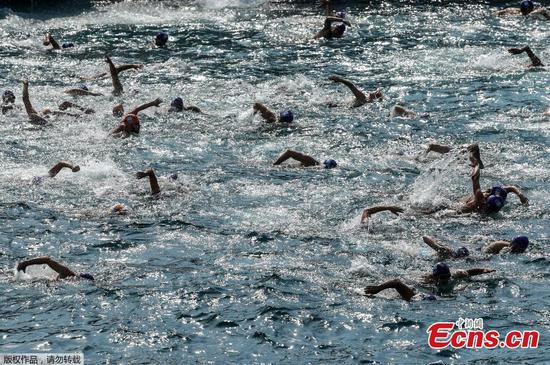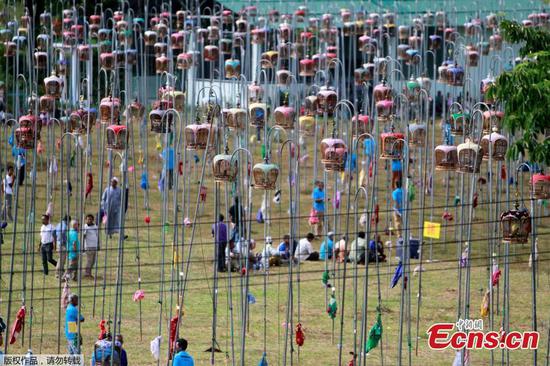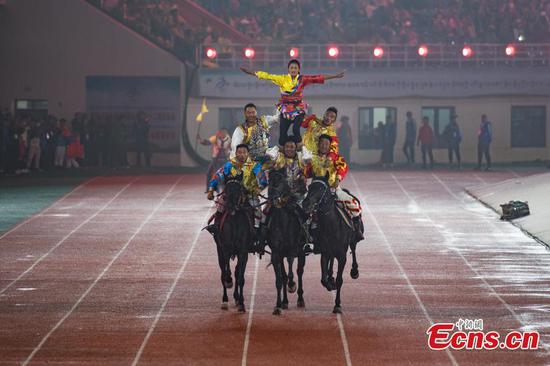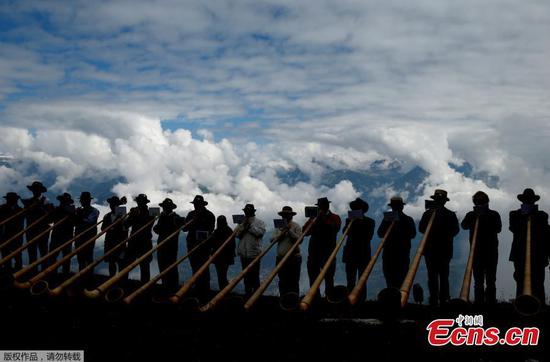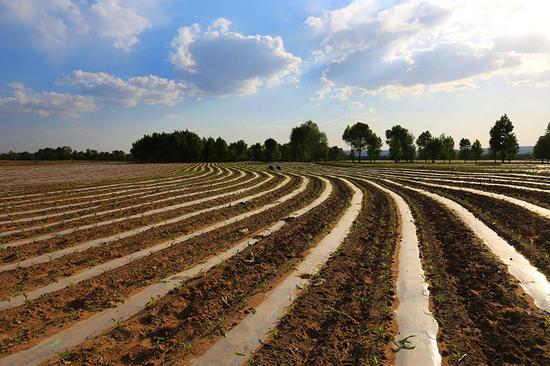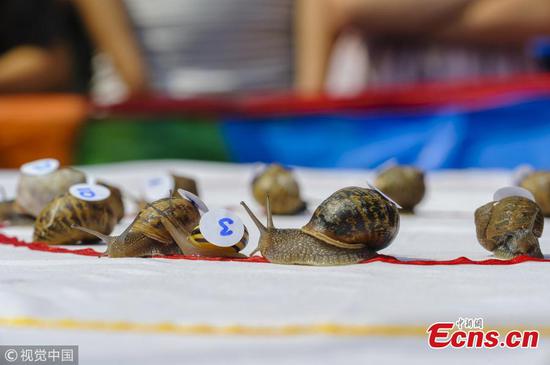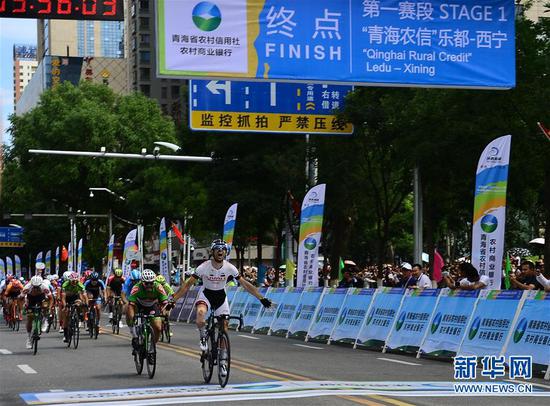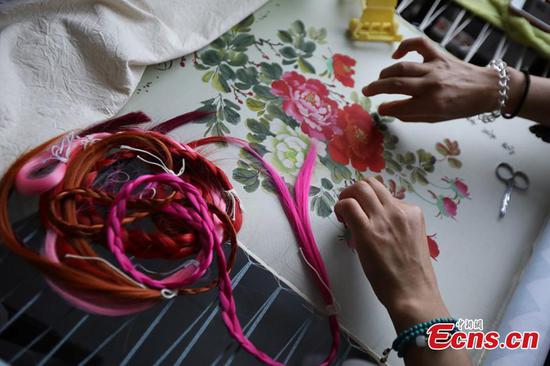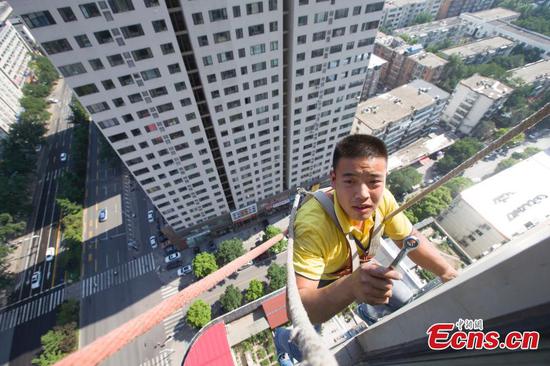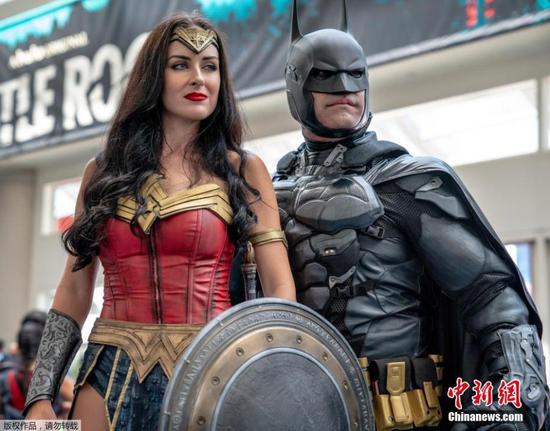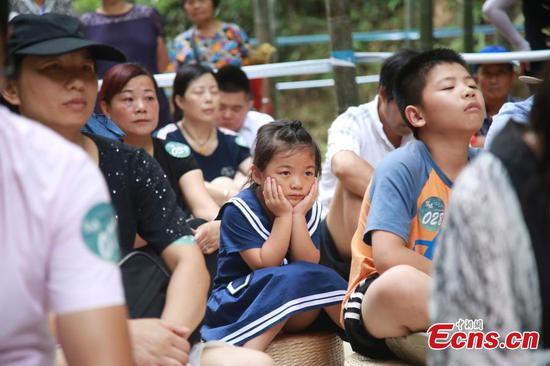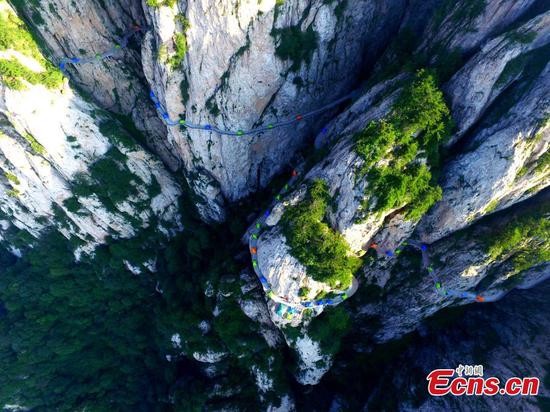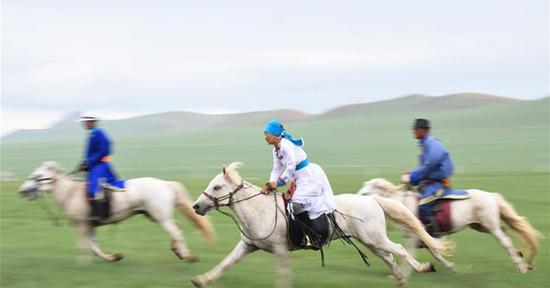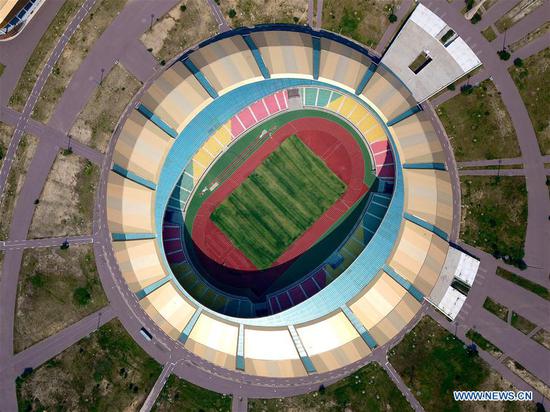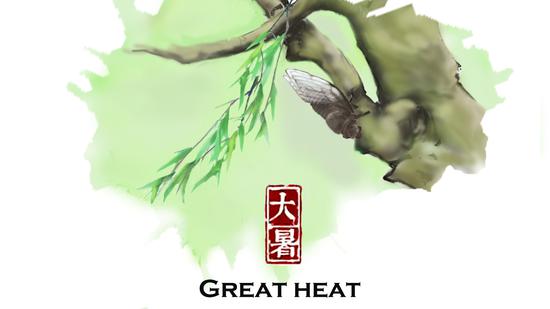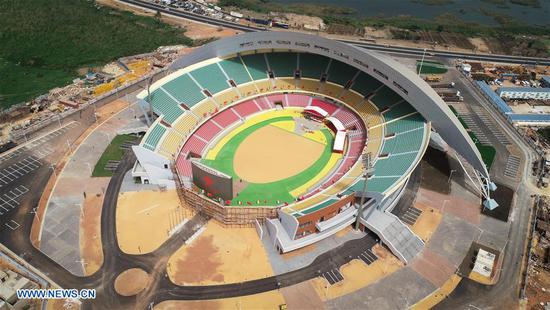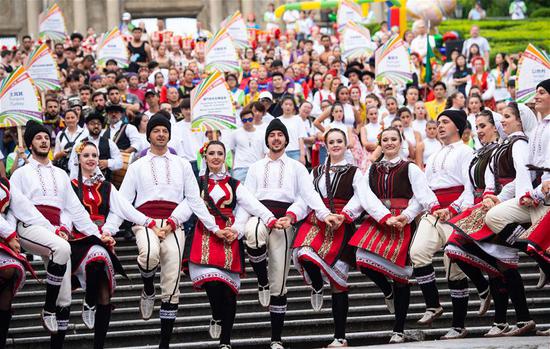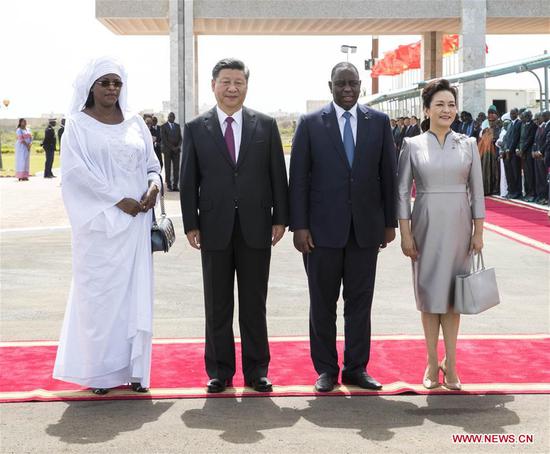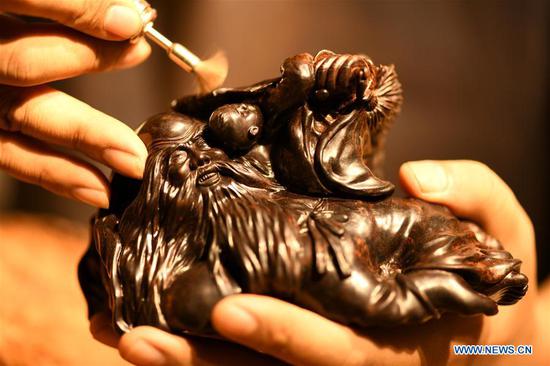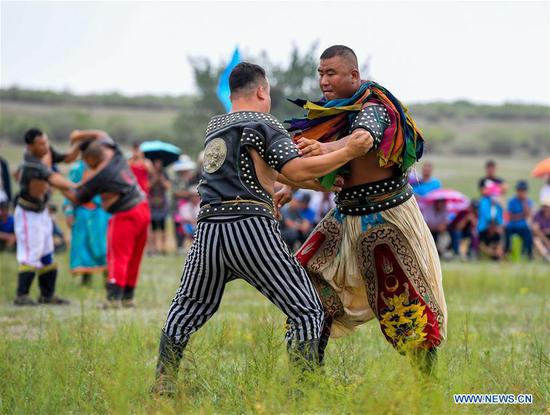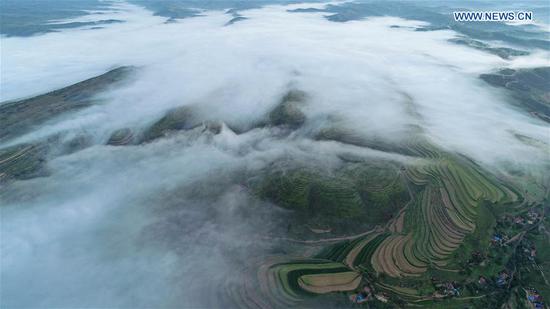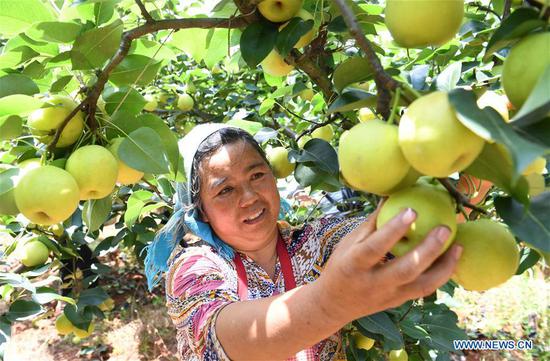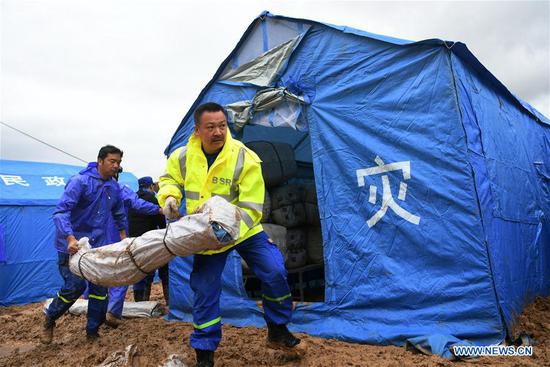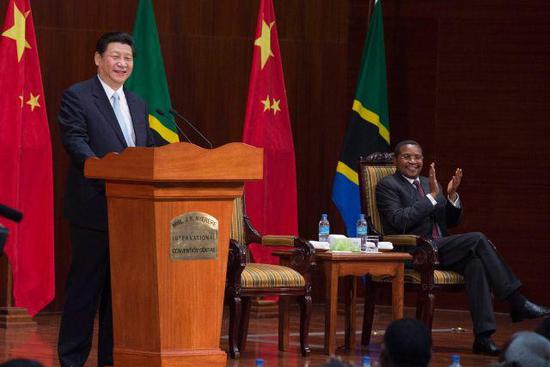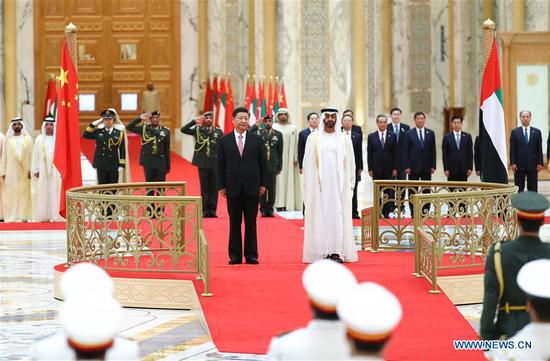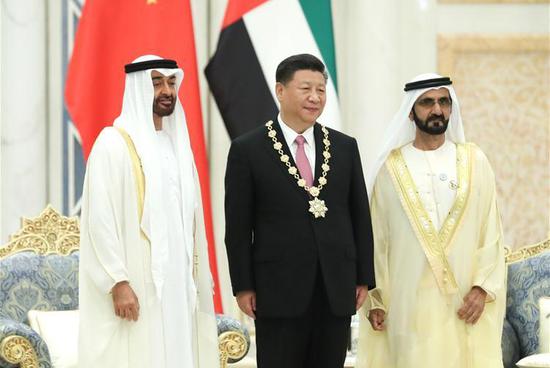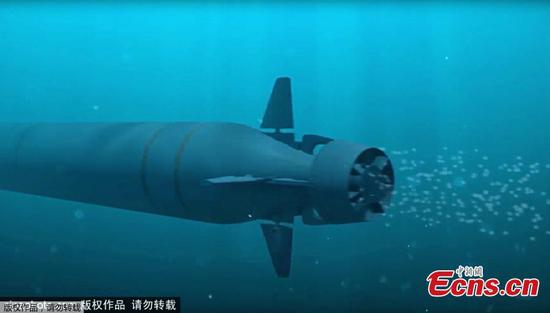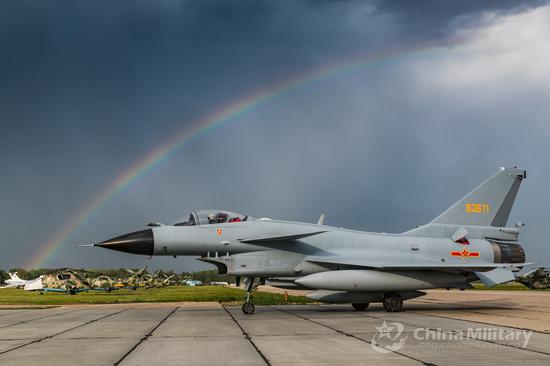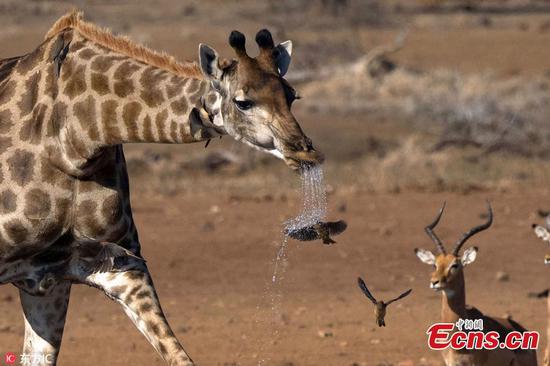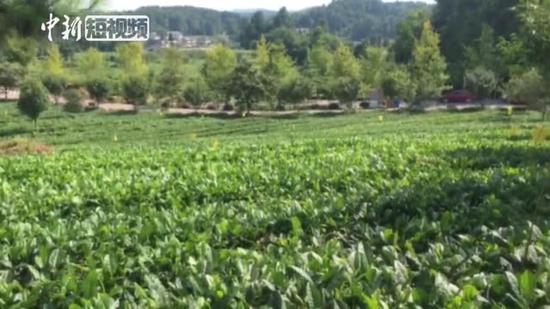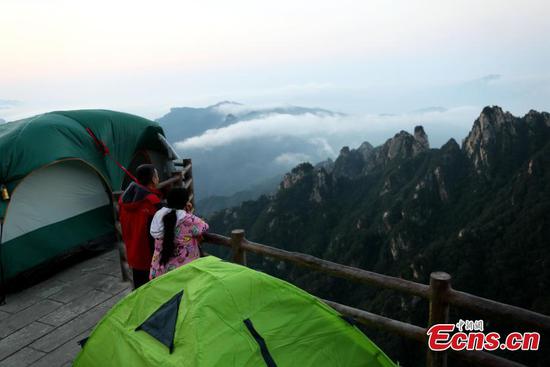President Xi Jinping has demanded a thorough investigation into the country's latest vaccine scandal and severe punishment for those accountable. He also called for improving the country's vaccine management system to protect people's safety.
The illegal production of vaccines by Changchun Changsheng Biotech Co is vile in nature and shocking, the president said in an instruction on Monday, adding that authorities must immediately investigate and release information in a timely way to answer the concerns of the public.
Vaccine safety is in the spotlight again, following the announcement by the State Drug Administration last week that Changchun Changsheng Biotech Co, a major vaccine producer based in Jilin province, fudged production records for rabies vaccines for human use. The SDA ordered the company to halt production.
Over the weekend, the public learned that more than 650,000 doses of DTaP vaccines for children were found substandard and ineffective in November. Of that number, some 252,600 doses were developed by Changchun Changsheng Biotech Co and 400,520 doses by Wuhan Institute of Biological Products in Hubei province.
The news sparked widespread public outrage, given that rabies is a disease with a fatality rate of nearly 100 percent if not properly treated, and DTaP vaccines are meant to prevent diphtheria, tetanus and acellular pertussis — all serious infectious diseases — and are mandatory for children.
Xi instructed on Monday that ensuring the safety of drugs is the duty of governments at all levels, and asked for an improved management system for vaccines to protect the immediate interests of the people.
Premier Li Keqiang has also pledged an immediate probe into the scandal.
A police release said on Monday evening that the probe had begun of Changchun Changsheng Biotech Co for its suspected violation of the law by making substandard rabies vaccines.
People with major responsibility in the case, including the company's chairwoman, surnamed Gao, and four other senior executives were taken to the police bureau for questioning, according to police in the Changchun New Area, where the company is based.
The China Securities Regulatory Commission said on Monday that it had launched an investigation of the company, which is listed on the Shenzhen Stock Exchange, for possible legal violations and irregularities in information disclosures.
The company said in a statement on Monday that it faces the risk of being delisted. Its shares have slumped 47 percent since mid-July.
Of the problematic DTaP vaccines, the 252,600 doses developed by Changchun Changsheng were sold to Shandong province, and the 400,520 doses from the Wuhan Institute were sold to Hebei province and Chongqing, the SDA said.
On Monday, health authorities in these three provincial regions said they had started revaccinating for children who had been injected with the substandard vaccines, and no major health consequences had been noted.
The DTaP vaccine is part of China's immunization program. A child must receive four doses — at 3, 4, 5 and 18 months old — to prevent the diseases.
Nearly 250,000 vaccines had been used in eight cities in Shandong, including Jinan, capital of the province, the Shandong Center for Disease Control and Prevention said on its website on Monday.
Inoculations using the problematic DTaP vaccine were stopped in November, it added.
No major health consequences have been found among more than 210,000 children in Shandong who had received the substandard vaccine, the Shandong CDC said.
The provincial authorities arranged the revaccination of all those children who had received the substandard vaccine, using qualified vaccines produced by other companies. Nearly 97 percent of them have finished the procedure. The rest of the children will get the new vaccination, too, it said.
Zhang Jiao, a staff member of Shandong Maternal and Child Health Hospital in Jinan, said parents can go to the hospital to confirm whether their children have received the substandard product, and if so, then wait for a notice to get vaccinated again.
A father who gave his surname only as Wang said his son is 1 year old, and he will opt for "more expensive or imported vaccines if possible".
Gong Zheng, governor of Shandong, said on Monday that the province will carry out a thorough inspection and severely punish those who failed in their supervision.









